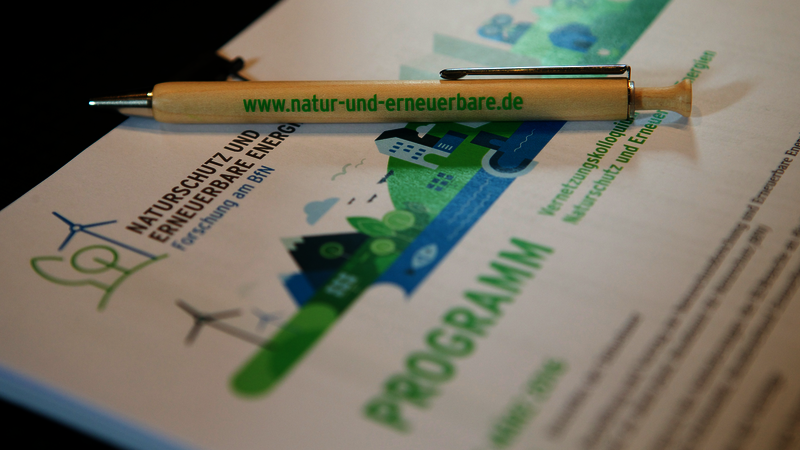Bridging the gap between the demands of nature conservation on renewable energies and the achievement of the expansion targets of the energy transition will be the focus of the colloquium "Nature conservation research and the energy transition: Focus on Species Protection".
Planners, operators, planning and nature conservation authorities and nature conservation representatives are faced with the task of designing the expansion of renewable energies within the framework of the energy transition in a way that is compatible with nature conservation. This includes, in particular, the consideration of species conservation requirements in the planning, development and operation of renewable energy plants. To this end, the BfN's research focus "Nature Conservation and Renewable Energies" relies on nature conservation monitoring of renewable energies and on higher-level scenarios for the design of a nature-friendly energy supply. These are underpinned in particular by findings on relevant species and proposals for their protection.
Against this background, the BfN Autumn Colloquium aims to provide a basis for discussion with good practice examples on how R&D results can be used to shape the energy transition in a nature-friendly way - which also brings species conservation into focus as an issue of the energy transition. The colloquium's guiding principle is to explore the possibilities and limits of preparing and communicating the current findings from the BfN's research activities in the research priority area "Nature Conservation and Renewable Energies" with reference to species conservation in a practice-oriented manner. What specific needs do licensing and nature conservation authorities have and what good examples do current research results provide? How does species conservation meet the challenge of not being instrumentalised? What are the possibilities for good practice?
The colloquium is aimed at all planning and nature conservation stakeholders involved in the energy transition as well as research and development projects on renewable energies and species conservation.
Unfortunately, the number of participants is limited. Further registrations are still possible from 30.09.2019 for BfN research participants, please send an email to info(at)natur-und-erneuerbare.de
Downloads
Programm Naturschutzbegleitforschung der Energiewende Fokus Artenschutz

